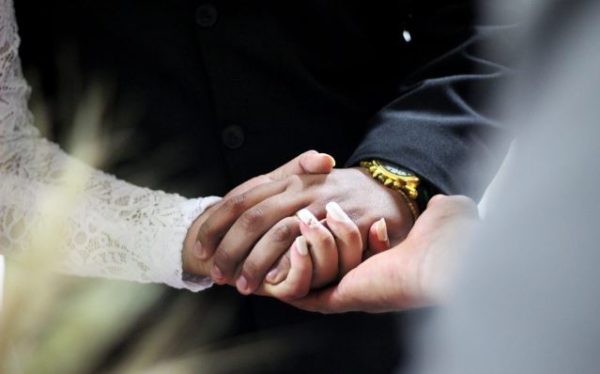Lifestyle
4 things you need to know before marrying a foreigner

While it is incredibly romantic, getting engaged to a foreigner comes with some practical challenges.
Many South Africans don’t realise that being able to live – and work – in the same place as your British spouse can be a long and rocky road if you aren’t properly informed.
If you have fallen for your own Englishman (or woman), we’ve put together a handy guide from the experts to help ensure you live happily ever after – as soon as possible.
1. Get married in SA
“While it’s tempting to believe that a marriage registered in the UK will make your UK settlement visa easier to obtain, it’s simply not true,” says Ryan Rennison, director of SA’s favourite UK immigration visa specialists, Move Up. According to Rennison, South Africans can have a difficult time getting permission to marry in the UK, while settlement visa applications with a marriage already registered in South Africa are better received.
According to leading local immigration lawyer, Craig Smith, for couples wanting to reside temporarily in South Africa, Home Affairs offers a temporary spousal visa granting foreign applicants permission to live in the country for 3 years with work, business or study endorsements.
“The downside is that, if not married, a spousal visa can only be applied after the relationship is proved with two years’ worth of financial evidence of sharing resources. If you are married then you are not required to produce financial evidence and can immediately apply,” he adds.
Couples married or in a permanent relationship of five years or more can obtain permanent residence: Smith recommends that applicants apply for the spousal visa and permanent residence concurrently. While standard South African permanent residence can take up to two years to process, with extreme cases taking even longer, elevated interventions like court visits can reduce delays.
Insider tip:
The advantage of marrying someone from the UK is that their spousal settlement visas are usually processed within three months.
2. Save money
A South African wedding is far cheaper to host than one in the UK – and prettier too. South African wedding offers unbeatable views and a range of world-class suppliers who create Pinterest-worthy weddings – all at comparatively cheap pricing.
If your foreign spouse is unable to secure a coveted work visa and job locally, you may need to consider a temporary relocation to the UK. That will allow both of you to secure work and save money during the early years of your marriage.
Insider tip
Don’t forget that it’s also cheaper for UK-based wedding guests to visit South Africa than the other way around.
3. Apply for your UK visa after the wedding
The UK’s Home Office has put strict procedures in place to prevent fraudulent marriages from happening. Applying for your settlement visa from your country of residence is one of the rules.
“Settlement visa applicants should take note that they cannot change their visa status while in the UK – they will need to travel back to their country of residence to apply for the new visa” says Rennison. “From that perspective it makes sense to apply for your UK settlement visa as soon as possible after your wedding in South Africa,” he adds.
Insider tip:
Getting married on paper (legally) in South Africa three to four months before your ‘white wedding’ will allow you to apply immediately for a settlement visa so that you won’t have to be apart for even one day come the honeymoon.
4. Gather evidence of your relationship now
Along with application safeguards, Home Affairs (SA) and the UK Home Office will (immediately or down the road) require significant proof of a monogamous, long-term relationship.
Claire, 32 met and married a British citizen in Cape Town, moving to Scotland with her husband a few years later. They were required to produce documentation proving they lived at the same address (e.g. utility bills or home loan statements in both their names), date-stamped pictures of them together and even a paper trail of email correspondence and transcripts of WhatsApp messages to one another.
“On chatting to friends in the same position we discovered that, for some couples, even sworn affidavits from friends confirming the authenticity of the relationship are required,” says Claire. “The bottom line is that the sooner you start collecting this information, the better!”






